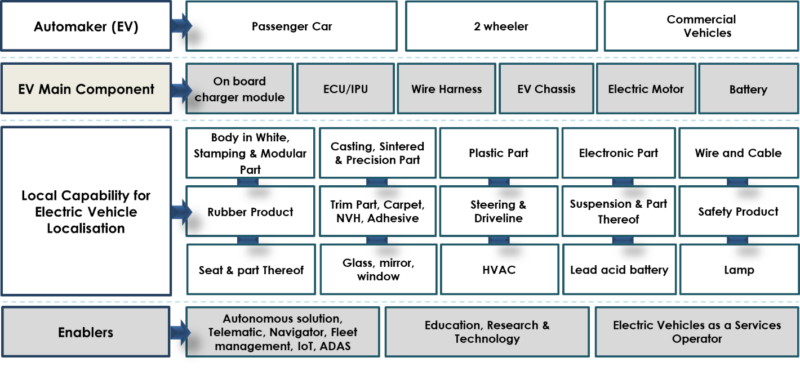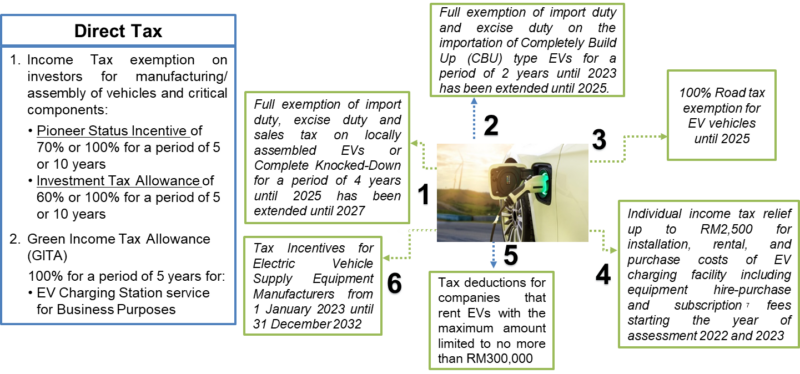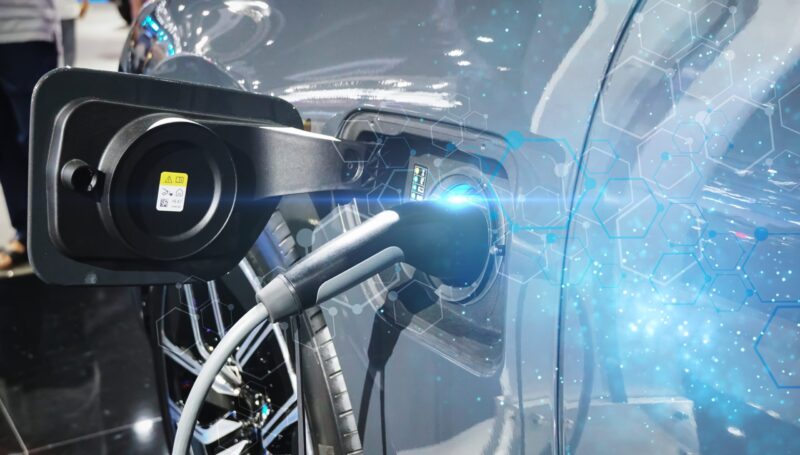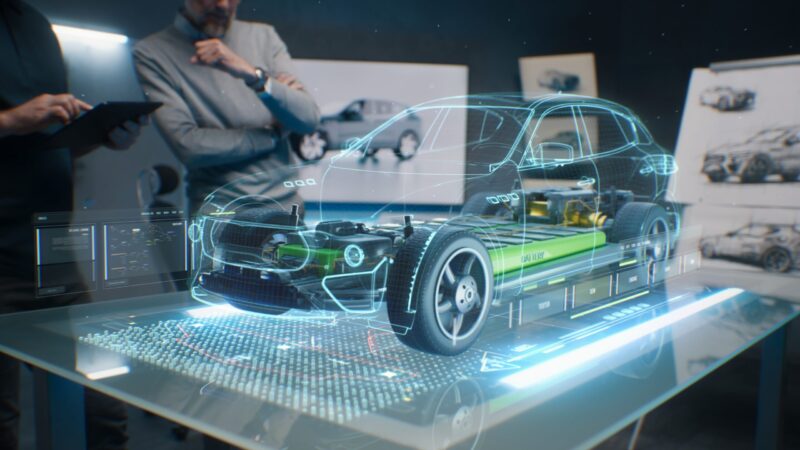
This site
is mobile
responsive

The Global Push for Electric Vehicles: A Climate Imperative
Transportation is currently the fastest-growing source of greenhouse emissions worldwide, accounting for 17% of global greenhouse gas emissions. In response, the global ecosystem for electric vehicles (EVs) is rapidly expanding as governments and the transportation industry realise that switching from fossil fuel-powered transportation to EVs can help cut carbon emissions and slow down global warming. EVs have the potential to reduce these emissions by up to 30%, with even higher percentages possible if the vehicles run on renewable energy.
As part of its commitment to reach net zero emissions by 2050, Malaysia is leveraging the benefits of electric mobility to meet its emission target and expedite the nation’s energy transformation. The National Energy Transition Roadmap (NETR) emphasised the goal of EVs to account for 80% of the total industrial volume (TIV) by 2050. This ambitious target builds upon the objectives previously established by the National Energy Policy 2022-2040 (NEP) and the Low Carbon Mobility Blueprint 2021-2023 (LCMB).
As highlighted in the New Industrial Master Plan (NIMP) 2030, Malaysia is adopting a mission-based approach to drive the industry transformation, acting as a lever to strengthen capabilities in line with the strategic investment and industrial goals under the National Investment Aspirations (NIA). As part of this mission-based strategy, Perusahaan Otomobil Kedua Sendirian Berhad (Perodua) has been chosen as the local champion for locally manufactured EV to lead the national EV innovation.
In light of this, the Malaysian Government is committed to growing and advancing the EV sector. As a result, the National EV Steering Committee (NEVSC) and National EV Task Force (NEVTF) was established and chaired by the Deputy Prime Minister II / Minister of Energy Transition and Water Transition and Minister of Investment, Trade and Industry (MITI) respectively, with Malaysian Investment Development Authority (MIDA) serving as co-secretariat. Other members include the Ministry of Finance (MOF), Ministry of Transport (MOT), Ministry of Science, Technology, and Innovation (MOSTI), among others, to spearhead the strategic initiative towards EV development and deployment in Malaysia.
Malaysia has a remarkably comprehensive EV ecosystem. For instance, Malaysia has extensive local capabilities in automotive manufacturing to support EV localisation with the EV automakers as the driving force. The impressive growth of players in EV main components and EV industry enablers in education, research and technology, service operators and autonomous solutions propels the development of Malaysia’s EV ecosystem.

Malaysia’s prominence in the global automotive scene is evident through significant investments and collaborations with prominent automotive industry players, which have laid a strong foundation for the country’s automotive landscape today.
One noteworthy example, the Malaysian national brand Perusahaan Otomobil Nasional Sdn. Bhd. (Proton), in partnership with Geely, has announced its entry into the EV market with the introduction of its first-ever EV, the e-MAS, scheduled for launch in December 2024.
Similarly, Chery, a leading Chinese automotive manufacturer, has chosen Malaysia as a strategic destination for its expansion, introducing its EVs to the Malaysian market this year. Top battery producer from China, EVE Energy Sdn. Bhd., has also set up a production base in Malaysia to manufacture cylindrical lithium-ion batteries for electrical two-wheelers and power tools.
These achievements that have contributed to Malaysia’s growing development in the EV industry are very much being assisted by the Government’s proactive measures such as incentives to promote EVs in the country. The Government has introduced direct and indirect tax reliefs to stimulate supply and demand, including incentives for the assembly or manufacturing of EVs, component parts and the development of EV ecosystems such as charging facilities.

Despite the aggressive initiatives that are being introduced by the Government, challenges remain, such as insufficient EV charging infrastructure. Currently, Malaysia has about 2,300 EV charging bays which are inadequate to cater to a broad EV market. Other challenges include high costs of EV battery, shortages of parts, lack of EV experts and skills programmes, electricity grid challenges and inconsistencies in EV charging standards and installation guidelines.

Nonetheless, recognising the gaps, the government is urgently addressing these issues, revising and introducing new policies and initiatives to ensure a mature EV sector, thereby attracting more EV investments into the country.
To date, MIDA has approved 68 projects totalling RM30 billion in the EV and its related ecosystem from 2018 to 2023. The approved investment consists of the assembly of EVs, manufacturing of EV parts and components and its charging components, aligned with the NIA.
In conclusion, Malaysia’s commitment to developing a robust EV ecosystem reflects its broader ambition to achieve net-zero emissions by 2050. Strategic initiatives, substantial investments, and proactive government measures highlight the nation’s resolve to transform its automotive industry. Despite facing challenges such as insufficient EV charging infrastructure and high costs, Malaysia is making significant strides toward creating a sustainable and innovative EV landscape. With continuous efforts to address these obstacles and attract further investments, Malaysia is well-positioned to become a leader in the global EV market, paving the way for a greener and more sustainable future.
To learn more investment opportunities in the EV industry, please contact the Transportation Technology Division at https://www.mida.gov.my/staffdirectory/transportation-technology-division/.
